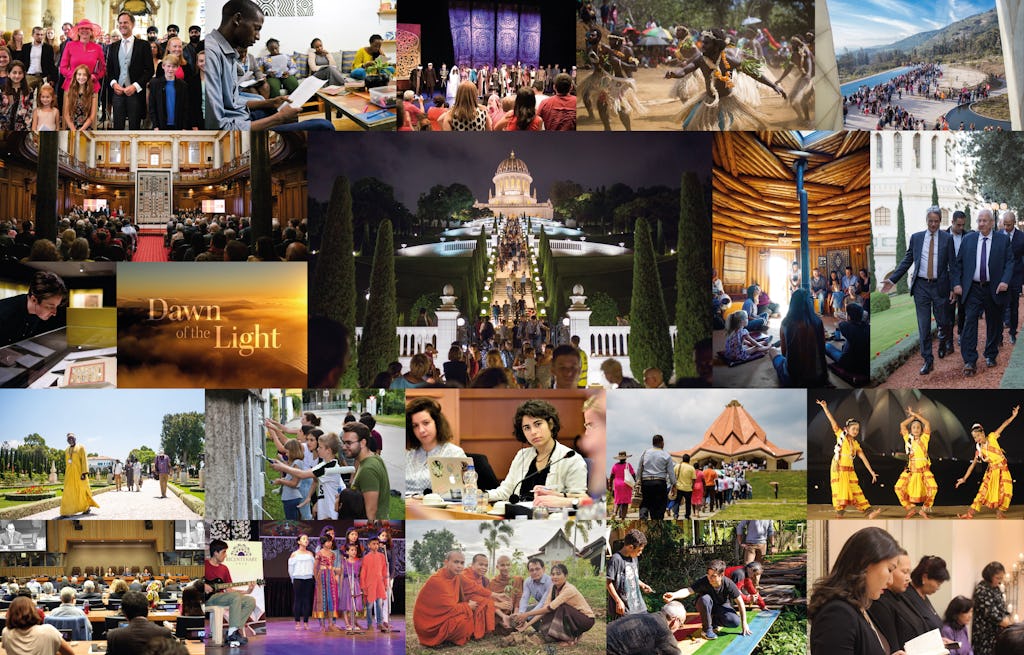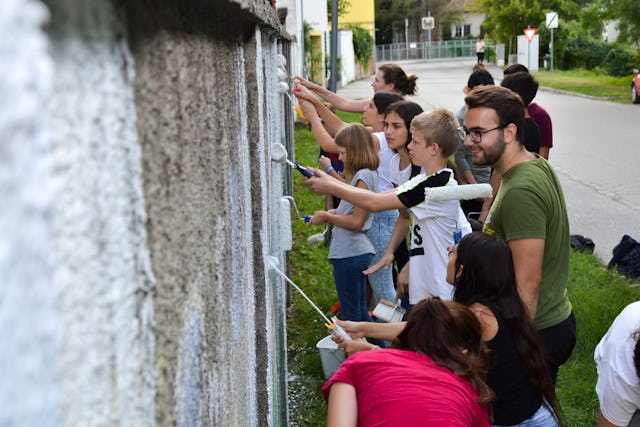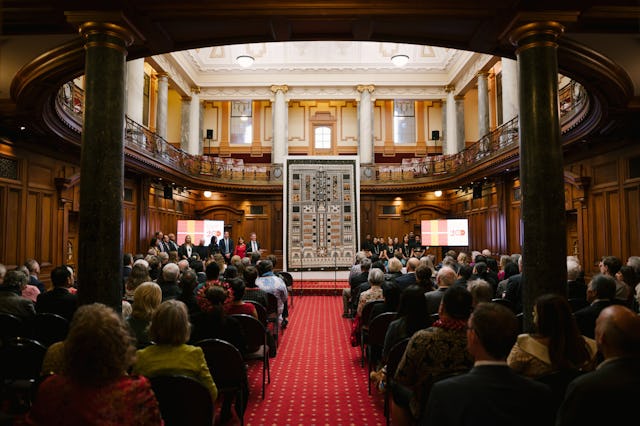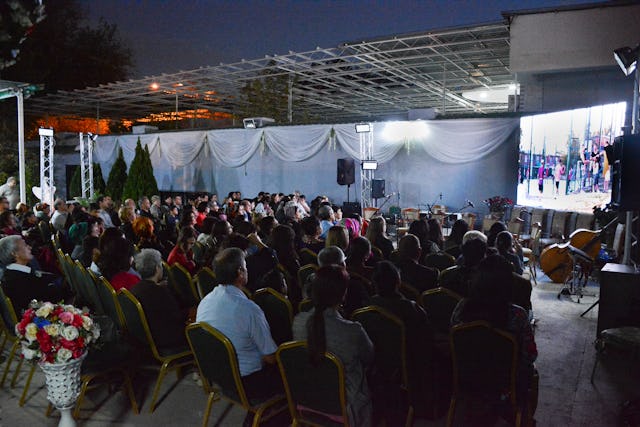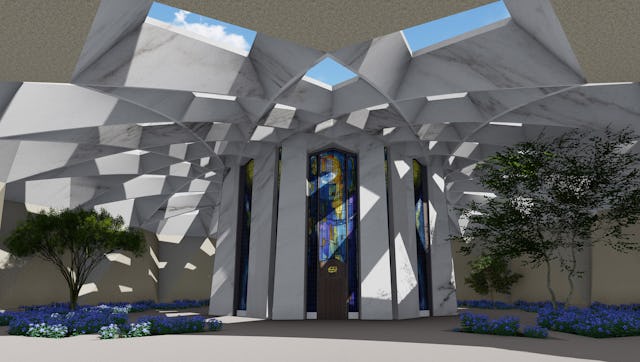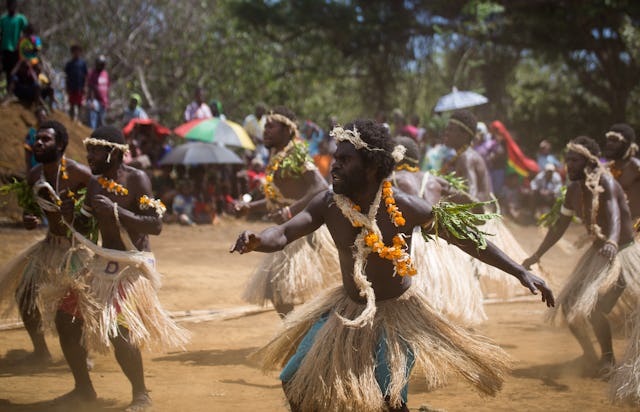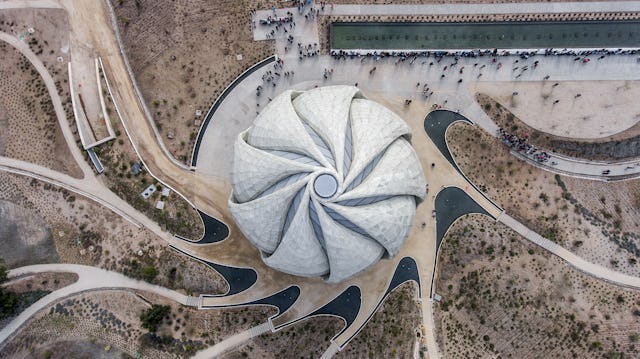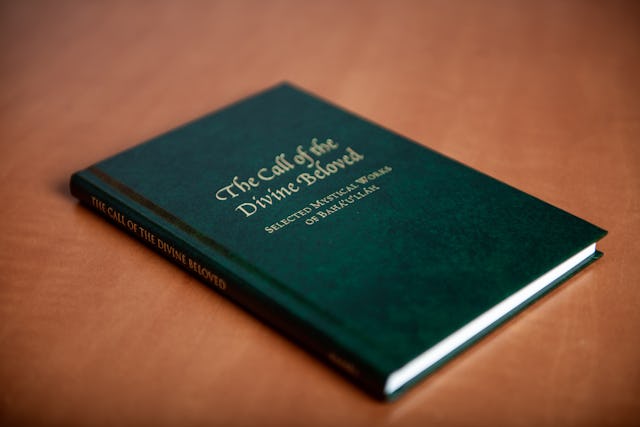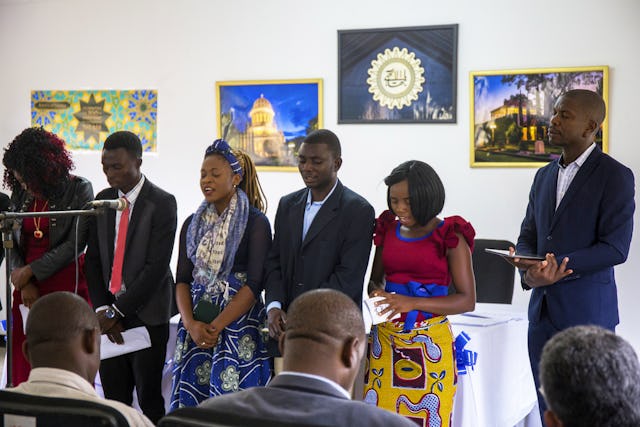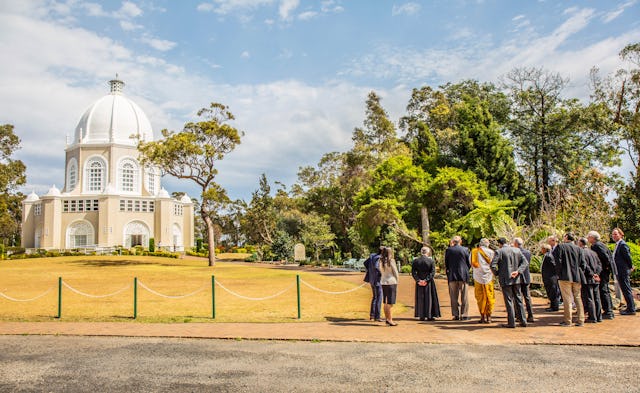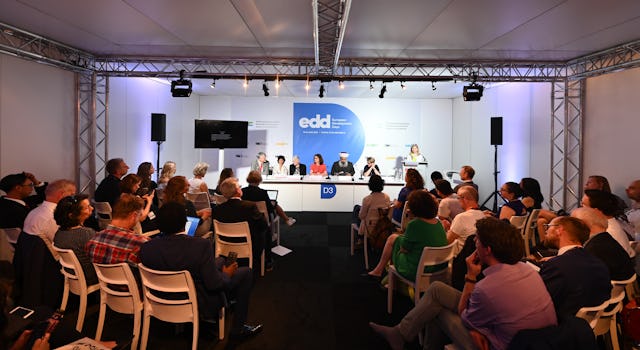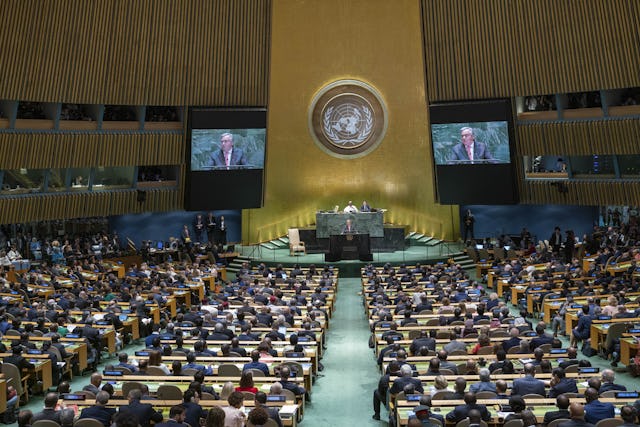2019 in review – A year of historic developments
BAHA’I WORLD CENTRE — The Baha’i World News Service, reflecting on 2019, provides a brief overview of stories in the past year about developments in the global Baha’i community and a glimpse of the extraordinary worldwide celebrations that took place in honor of the second historic bicentenary.
200th anniversary of the birth of the Bab
October 2019 marked the 200th anniversary of the birth of the Báb, as the forerunner and herald of the Baha’i Faith, whose dramatic ministry paved the way for the appearance of Baha’u’llah. The bicentenary was celebrated worldwide at every level, from the grassroots to the international.
In villages and neighborhoods across the globe, bicentenary preparations began months in advance, prompting an unprecedented intensification of community building activities and an outpouring of artistic works to mark the occasion, reflect on its significance, and recall the momentous life of the Bab. In the lead-up to the anniversary, the News Service reported on these preparations and celebrations in each continent: Africa, the Americas, Asia, Australasia, and Europe. Based on what had been learned in 2017, the celebrations were much more broadly based on this occasion at the grassroots of society.
Notable events also took place at the national level. In the United Kingdom, the British Library launched a remarkable exhibition displaying examples of the Faith’s original texts and hosted an acclaimed one-man play for the occasion; in Australia, New Zealand, and the United States members of Parliament commemorated the bicentenary, acknowledging the Baha’i community’s contributions to the life of society; and in India, the country’s Baha’i community held a special reception for President Ram Nath Kovind.
At the Baha’i World Centre, President of Israel Reuven Rivlin visited the Shrine of the Bab to honor the bicentenary. On another occasion, a reception was held for community leaders, and the terraces on Mount Carmel as well as the Shrine of the Bab were opened to thousands of visitors for a two-night special program.
The Baha’i International Community offices honored the bicentenary by bringing together dignitaries and other officials to explore the relevance of the Bab and Baha’u’llah’s teachings to the conditions of the world today.
A film commissioned for the bicentenary, Dawn of the Light, was screened in countless locations around the world. The film follows the personal search for truth and meaning undertaken by people from different parts of the world.
Glimpses of celebrations were captured on the international website Bicentenary.Bahai.org, where a letter from the Universal House of Justice written for the occasion is also available.
The Shrine of Abdu’l-Baha
This year, the Universal House of Justice announced plans for the construction of a sacred structure, distinctive in its design, to be built to honor ‘Abdu’l-Baha, Who holds a unique station in religious history. In May, the House of Justice announced its selection of the Shrine’s architect, and in September it unveiled the structure’s design concept.
The Shrine will be built in the vicinity of the Ridvan Garden in Akka, a holy place visited on Baha’i pilgrimage—a spiritual journey to the Holy Land taken by thousands of people from around the world each year.
Baha’i Houses of Worship
The News Service covered a variety of stories this past year on what is being learned about the social impact of Baha’i Temples in communities around the world and on advancements in the construction of new Houses of Worship in Kenya, Papua New Guinea, and Vanuatu.
A two-part podcast (Part one | Part two) featured interviews with participants of a unique gathering that brought together representatives from 10 countries to explore insights emerging about these structures. In another podcast, representatives from a community in Uganda, where a Temple has stood for over 50 years, explored how collective prayer is influencing society at large.
In Chile, the Temple was recently recognized for its transformative impact on society and for being “expressive of the humanistic values of justice, respect, equality, and inclusiveness.” In India, the Baha’i community hosted a symposium examining how places of worship can aim to unite people and stimulate deep contemplation on spiritual reality and life’s foundational questions.
Publications online and in print
The past year saw the publication of new selections from the Writings of Bahá’u’lláh and ‘Abdu’l-Bahá, as well as the launch of new websites—the Baha’i World publication and the News Service in French and Spanish.
A new volume of Baha’u’llah’s mystical Writings was made available online and in print in February, including a translation of one of His most renowned poetic works, Rashh-i-‘Ama, or The Clouds of the Realms Above. In May, 67 selections from ‘Abdu’l-Baha’s Writings were published for the first time on the Baha’i Reference Library. In August, several collections of images on the Baha’i Media Bank were updated.
Social and economic development
The News Service reported on various examples this year of advances in Baha’i social and economic development endeavors. In Macau, a Baha’i-inspired school that seeks to develop intellectual and moral excellence in its students celebrated its 30th anniversary. In Zambia, decades-long educational processes gained momentum with the opening of new educational facilities in two regions of the country. A podcast episode explored how a group of young women from India helped their communities to overcome superstitious attitudes that have ostracized women for generations. The News Service also reported on how a united and hopeful community in Mozambique mobilized to contribute to recovery efforts in the aftermath of Cyclone Idai.
And, the five-member board of directors of the newly established Baha’i International Development Organization convened its first meeting in January to consult on its aims and work. The emergence of this new institution at the international level portends significant advances in this area of endeavor in the years to come.
Participation in the discourses of society
Efforts of the Baha’i community to contribute to the betterment of society at the level of thought continued to be a prominent theme covered by the News Service in 2019.
The Baha’i International Community this year participated in forums on the equality of women and men, the role of religion in development, the role of local communities in humanitarian relief, and the status of implementation of the Sustainable Development Goals.
National communities worldwide have participated in many forums where contemporary issues of concern to their societies are being considered by government and civil society actors. Themes explored in these communities have included the role of religion in promoting constructive social change, race unity, and issues concerning social and economic development.
In Spain, the Baha’i community hosted prominent journalists in a roundtable discussion on news media’s impact on social cohesion and the rise of radicalization. In Canada, at a Parliament Committee hearing about combatting online hate speech, representatives of the Bahá’í community highlighted the importance of cultivating a strong moral framework to understand and analyze online media. In Italy and Kiribati, Baha’i communities expressed to their countries’ presidents a shared hope for a unified society. A podcast interview with representatives of Australia’s Baha’i community highlighted the power of consultation to build unity of thought and action in society. In the United States, the Baha’i Chair for World Peace at the University of Maryland, College Park, organized several conferences on prevalent issues, including the future of cities and the inseparable relationship between the advancement of women and the creation of prosperous and peaceful societies.
The News Service also reported on the importance of the participation of youth in social discourses. Young people explored critical issues such as race unity in New Zealand, the environment in the Netherlands, and the younger generation’s distinctive role in contributing to social transformation in Germany.
Persecution of the Baha’is in Iran and Yemen
Against the backdrop of these advances worldwide, the persecution of the Baha’i communities in Iran and Yemen continued.
Earlier this month, the United Nations condemned Iran’s ongoing human rights violations, as the country’s Baha’i community continues to suffer under the weight of state-sponsored systematic persecution. During the celebrations of the bicentenary of the birth of the Bab, Iranian authorities raided gatherings in homes, arrested Baha’is, and sealed off business that were closed in observance of the Holy Days. Over the course of the year, Baha’is in Iran have experienced ongoing persecution, including revolving arrests and home raids; multiple court cases, in some instances yielding sentences of up to 10 years; and continued expulsion of students from university on the basis of their Faith. Many businesses owned by Baha’is remain sealed by order of local authorities.
In Yemen, six Baha’is have remained in prison in Sana’a, one of whom, Hamed bin Haydara, is under a sentence of death. The six have been detained between two-and-half and six years each. During the appeals hearings for Mr. Haydara, the prosecution had repeatedly pressured the court to not only uphold the verdict to execute him but also to deport all Baha’is and ban their entry into the country. In September, the U.N. Human Rights Council condemned the Houthi persecution of the Baha’is.
